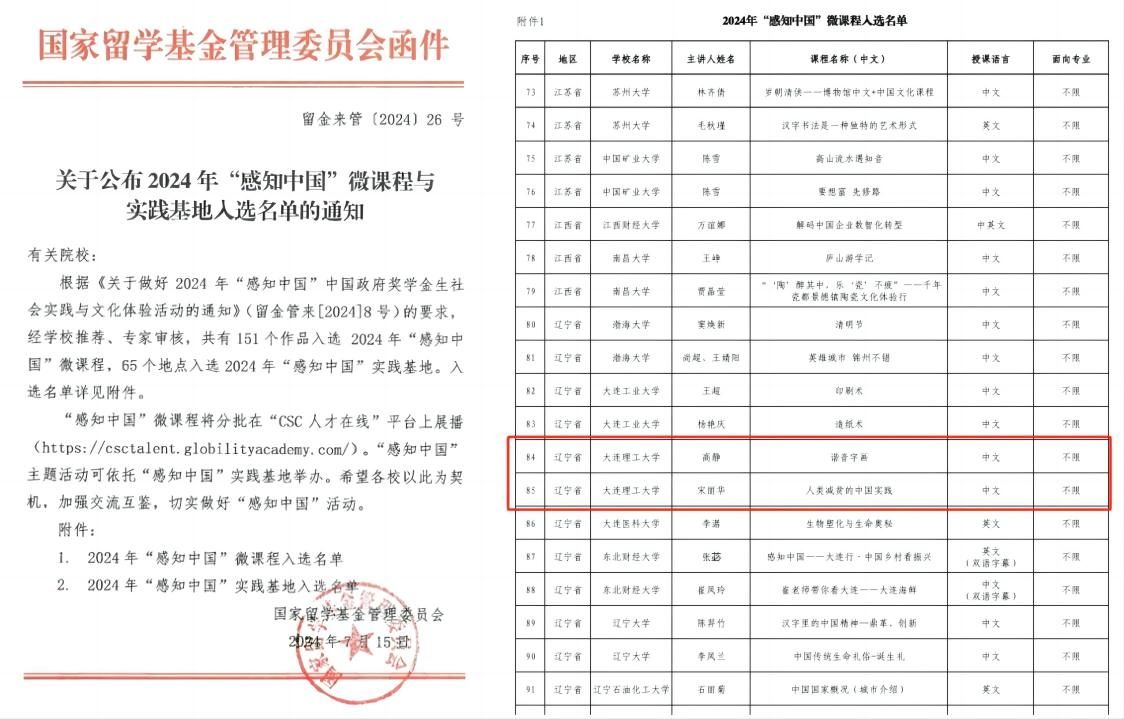Recently, the China Scholarship Council (CSC) announced the list of selected courses for the 2024 "Understanding China" micro-course series. After being recommended by the university and reviewed by experts, two courses from our university, "Puns in Chinese Painting" (taught by Gao Jing) and "China's Practice in Human Poverty Alleviation" (taught by Song Lihua), have been successfully selected. These courses will be showcased on the "CSC Talent Online" platform.

"Puns in Chinese Painting" aims to explore the use of homophonic elements in Chinese painting and their cultural significance. The course begins with the phenomenon of puns in traditional Chinese culture, providing a detailed analysis of the techniques and symbolic meanings of puns in Chinese painting. Through rich examples, students will learn how specific auspicious meanings or cultural messages are conveyed through imagery in paintings.
"China's Practice in Human Poverty Alleviation" is an important chapter in the general education course "Introduction to China" for international students. It presents the history, targeted strategies, and remarkable achievements of China's poverty alleviation efforts, highlighting their global significance. The course inspires students to understand China's core values of "people-centered" development and the sustainable development and shared interests embedded in the "Community of Shared Future for Mankind" initiative.
The 2024 "Understanding China" event marks the first time that Chinese culture and national education micro-courses have been solicited and selected from universities nationwide. The initiative aims to build a "Understanding China" course library and lecturer team, providing reference examples of courses for national education for international students in China.
In recent years, SIE has been deeply committed to enhancing Chinese culture and national education for international students by launching the "Excellent Teachers, Excellent Learning, Excellent Courses" plan, organizing premium classroom and course selections, holding the and "Seeking the Path" teaching salon, etc. These initiatives have effectively integrated talent cultivation, teaching development, and teacher growth, yielding significant results. The two courses selected this time are both outcomes of the International Education School's premium classroom selection.
Looking ahead, the school will continue to focus on developing international Chinese education aligned with development strategies and the university's "Double First-Class" initiative. The goal is to build a team of outstanding teachers, cultivate high-quality international students who can witness and tell China's stories, and promote friendly exchanges between Chinese and foreign cultures.


